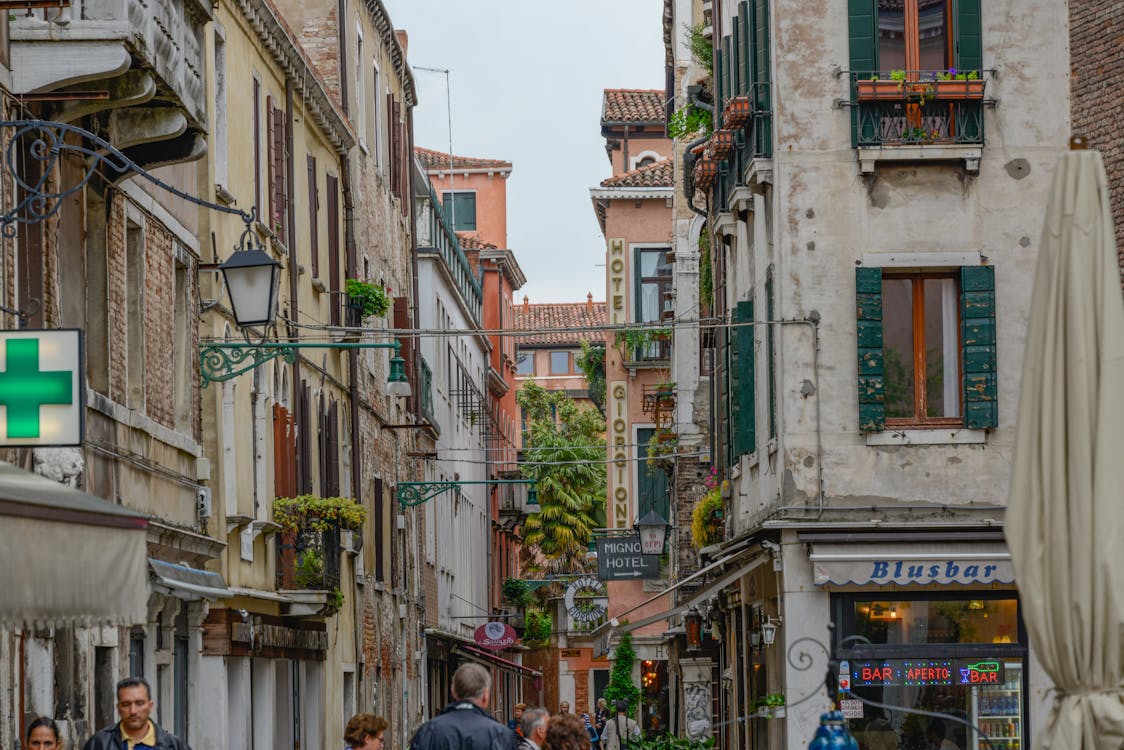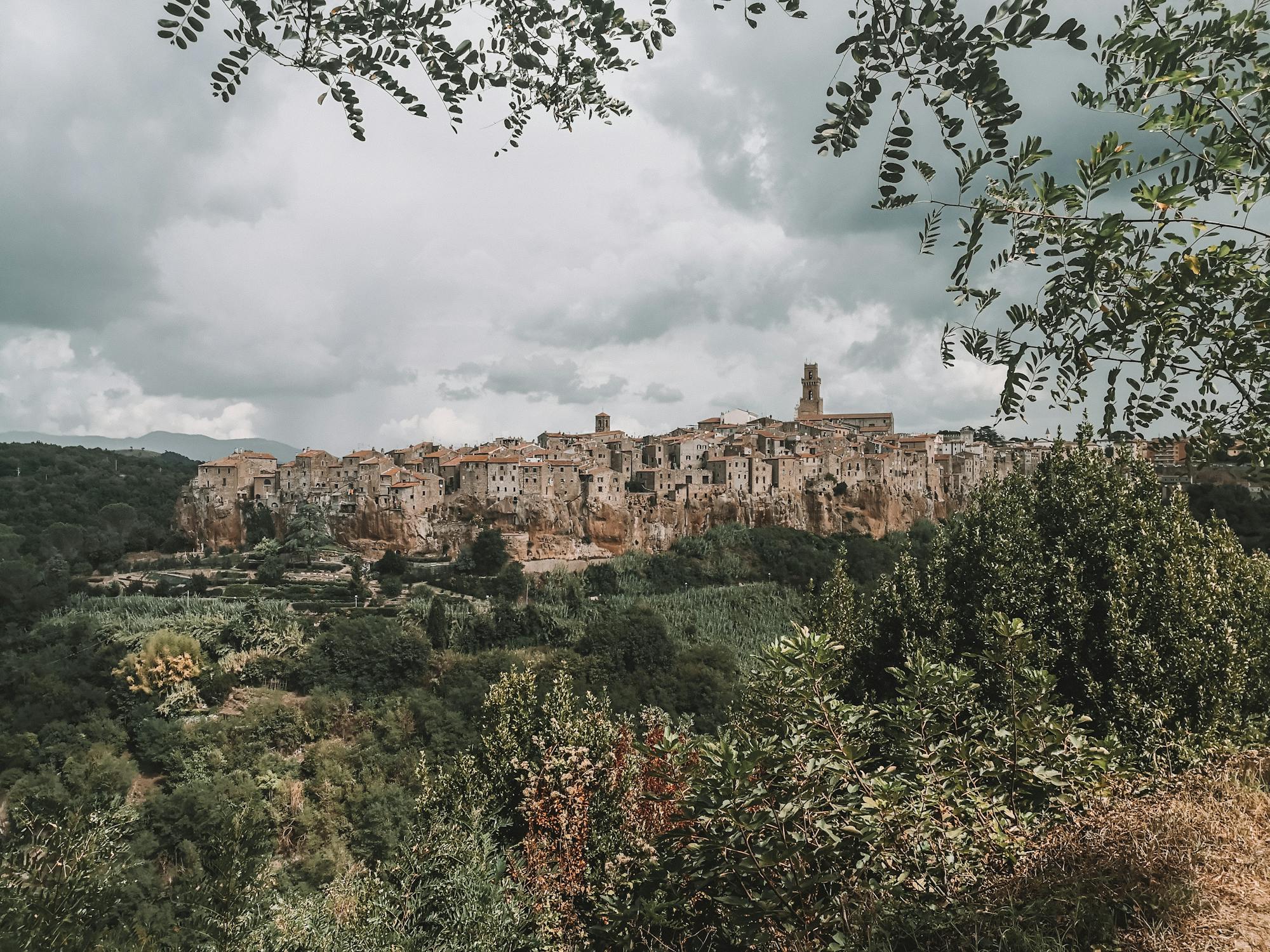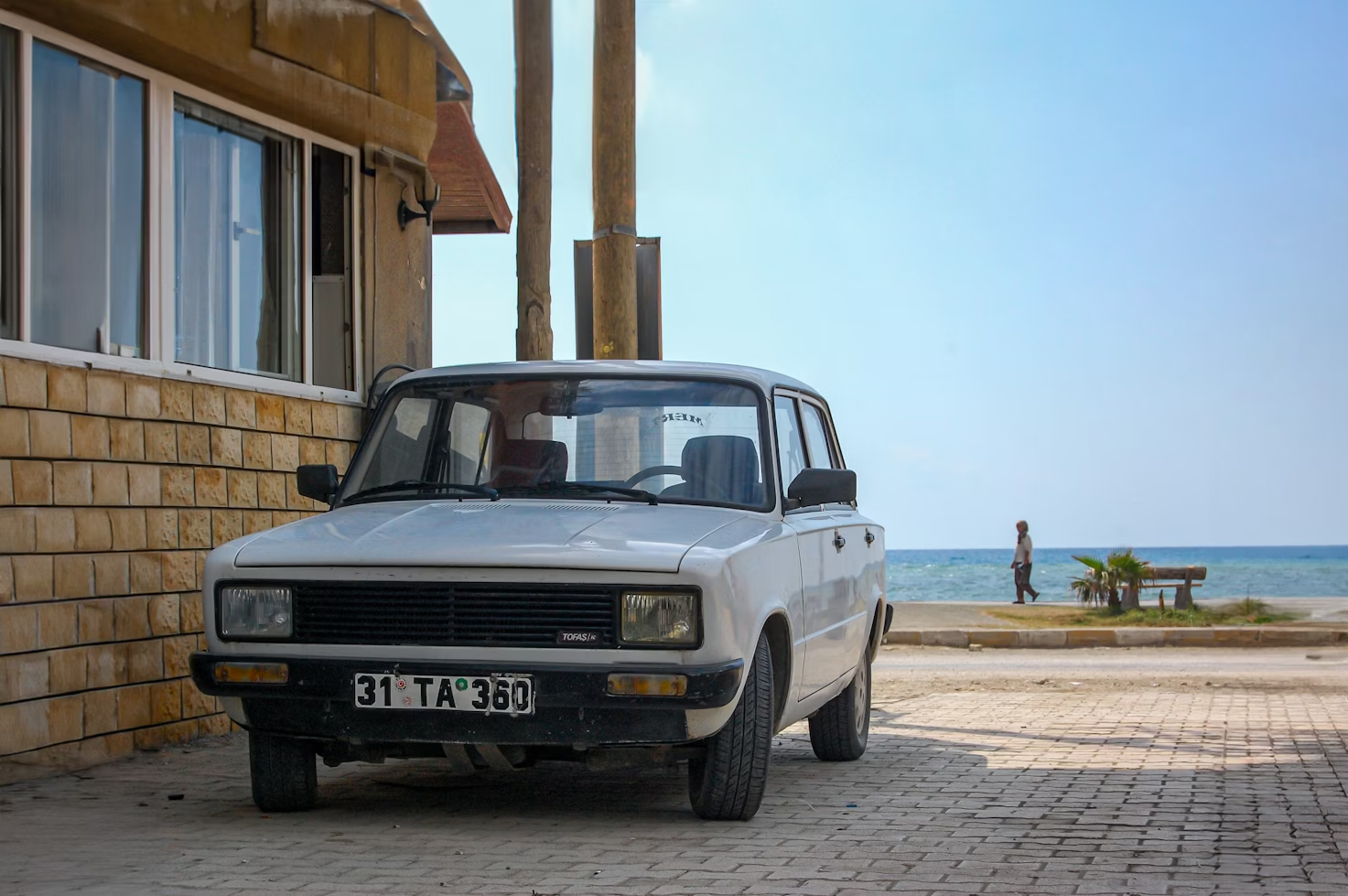Europe offers a wealth of accommodation options, but not all of them leave a positive impact. When you choose places that actively support local communities, you’re not just booking a stay—you’re helping sustain cultures, economies, and the environment.
- Choose accommodations that support local communities to help preserve cultures and traditions.
- Look for eco-friendly stays to reduce your travel’s impact on the environment.
- Spending locally strengthens small businesses and boosts local economies.
- Supporting community-driven lodgings promotes responsible tourism.
- Your choices can help protect natural spaces and ensure sustainable tourism for the future.
Whether it’s a family-run inn or an eco-friendly retreat, these choices let you travel more responsibly while connecting with authentic local experiences. Mindful decisions like these make your trip more meaningful and foster a deeper appreciation for the incredible diversity Europe has to offer.
Why Choose Accommodations That Support Local Communities
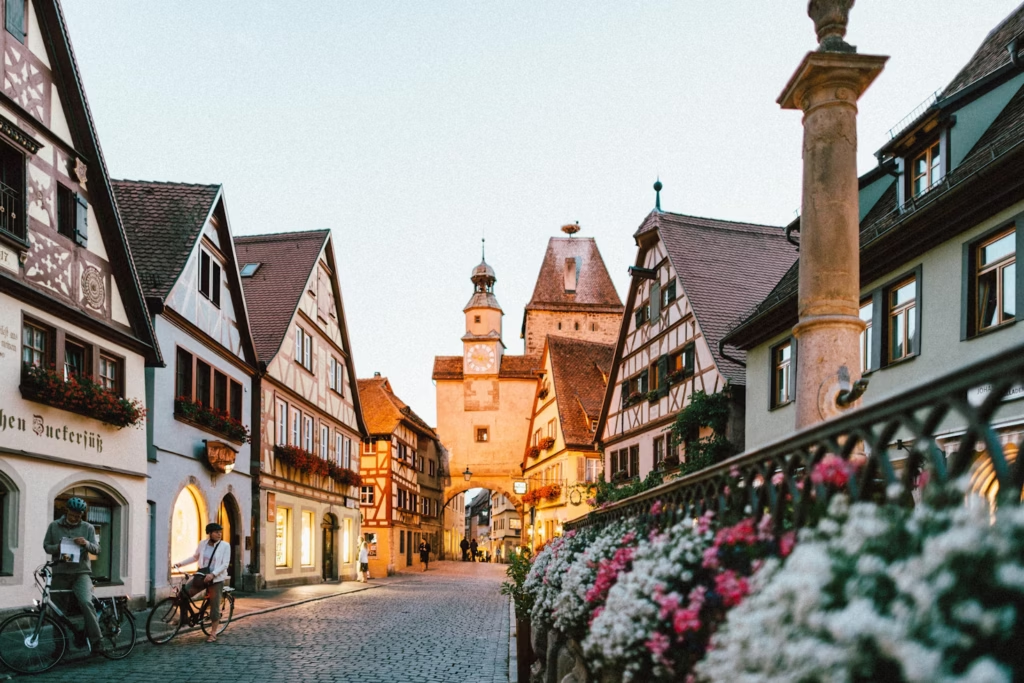
When traveling across Europe,booking a hotel accommodation can shape your journey and leave a lasting impact on the destination. Choosing hotels that prioritize local communities ensures your trip contributes positively to the places you visit. Beyond just comfort, these accommodations uphold sustainable tourism principles while offering unique opportunities to connect with culture and nature.
Economic Benefits of Local Accommodations
Staying in family-run guesthouses, independent hostels, or community-owned lodgings provides more than just a place to rest—it directly supports the local economy. When you choose these accommodations, your money stays within the community, empowering local families and creating jobs.
- It helps small businesses thrive by offering consistent income streams.
- Locally owned accommodations often collaborate with regional suppliers, benefitting farmers, artisans, and service providers.
- By employing locals, these businesses boost the area’s workforce while fostering economic self-reliance.
Preserving Local Cultures and Traditions
Europe’s rich traditions, such as Flamenco in Spain or lacework in Burano, can be experienced through culturally immersive stays. By choosing community-owned or heritage accommodations, you can actively support cultural exchange and help preserve these legacies. These unique lodgings offer several benefits:
- They preserve historical essence by incorporating local architecture and design into their spaces.
- They provide hands-on experiences like winemaking in Tuscany or pottery workshops in Crete to immerse guests in local traditions.
- They support local artisans by showcasing and selling handmade products directly on-site.
Environmental Advantages
Sustainability and responsible travel work together to create a positive impact on both communities and the environment. Many accommodations prioritize eco-conscious practices to minimize their environmental footprint and support local communities. These practices include:
- Using sustainable energy sources, such as solar panels or energy-efficient lighting, to reduce energy consumption.
- Eliminating single-use plastics and waste by providing refillable toiletries and water stations for guests.
- Sourcing food locally and organically to reduce transportation-related emissions and support local farmers.
Eco-friendly stays not only protect the planet but also promote healthier living for travelers and locals alike. Your accommodation choice can be a small yet powerful tool in nurturing the heart and soul of European communities while respecting the environment.
Top Accommodation Types to Support Local Communities
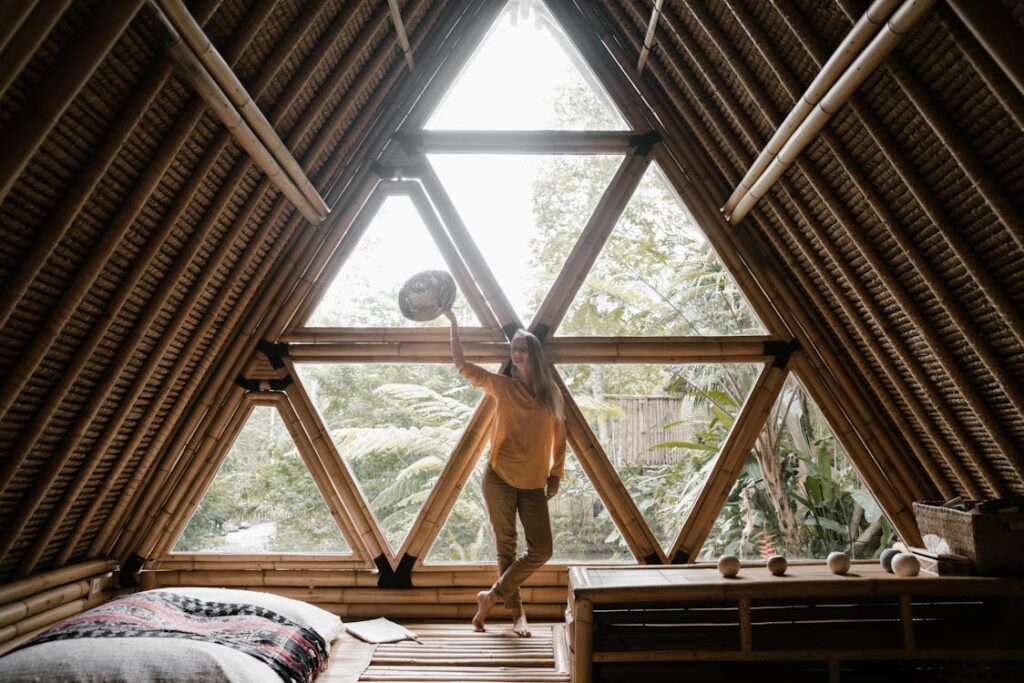
When traveling through Europe, finding accommodations that align with your values can make your trip not only more enriching but also more impactful. Choosing the right accommodation type creates a domino effect, helping local economies and preserving cultures. Let’s explore some of the top options for supporting local communities.
Family-Run Guesthouses
Family-run guesthouses are a cherished part of European towns and villages, offering a warm, personalized experience that sets them apart from commercial chains. Staying in these accommodations not only immerses you in local culture but also directly supports local families and communities. Here’s what makes them special:
- The owners themselves often host guests, creating a welcoming and home-like atmosphere.
- They rely on regional supplies, such as fresh local produce for breakfasts and handcrafted décor, providing an authentic and sustainable experience.
- Every euro spent goes directly to supporting local families and strengthening the community’s economy.
Community-Owned Rentals
Community-owned accommodations offer ethical travelers a way to make a positive impact while exploring new destinations. These rentals, often run by cooperatives or nonprofits, focus on channeling profits back into the local community to support important initiatives like education, affordable housing, and cultural preservation.
- These accommodations are managed by organizations that prioritize reinvesting profits into local development projects.
- Community land trusts, like Community Land Trust Brussels (CLTB) in Europe, provide affordable housing options while ensuring financial benefits stay within the region.
- By choosing community-owned rentals, travelers actively support social equity and enjoy a purpose-driven, meaningful travel experience.
Cultural Immersion in Agriturismos
Agriturismos are rustic accommodations on working farms, commonly found in countries like Italy and Spain. They provide a unique opportunity for travelers to immerse themselves in local traditions while supporting sustainable agriculture and rural economies. These charming stays combine relaxation with cultural exchange, offering guests a truly memorable experience.
- Guests can take part in hands-on activities such as olive harvesting, winemaking, or cooking classes, creating an authentic connection to local farming practices.
- By staying at an agriturismo, travelers directly support small-scale farmers, helping preserve age-old agricultural traditions in a rapidly modernizing world.
- These stays promote sustainability by funding local farmers and ensuring the survival of rural economies.
- Agriturismos offers a warm, family-like atmosphere, making visitors feel like they are part of the community.
Eco-Friendly Lodgings
Eco-lodges and sustainable accommodations offer a perfect blend of luxury and environmental responsibility, making them an ideal choice for conscious travelers. These thoughtfully designed stays focus on green practices while providing comfort and an immersive experience in nature. Here’s what makes eco-stays stand out:
- They prioritize renewable energy sources and waste reduction to minimize their carbon footprint.
- They support local communities by sourcing supplies from nearby markets and employing local staff.
- They actively educate guests on conservation efforts, such as protecting nearby ecosystems and reducing water usage.
- They offer a unique opportunity to explore nature-rich destinations while contributing to the preservation of the environment.
These accommodations can make your stay more meaningful. Whether youchoose Vrbo or Airbnb, picking the right platform helps you leave a positive impact and connect deeper with the places you visit. On your next trip to Europe, think beyond convenience—choose stays that make a difference.
How to Identify and Verify Community-Supportive Accommodations
When traveling, choosing community-supportive accommodations ensures your stay directly benefits the residents and environment. These lodgings often operate with values like sustainability, cultural preservation, and transparent economic contributions. Here’s how you can confidently identify and validate these options.
Certifications and Eco-Labels
Look for reliable certifications to ensure the accommodations adhere to strict sustainability and community-driven criteria. These certifications not only verify eco-conscious practices but also demonstrate a commitment to benefiting local economies and cultures. Here are a few noteworthy ones:
- Green Key: This globally recognized certification highlights lodgings making significant efforts in environmental sustainability.
- EU Ecolabel: A symbol of environmental excellence, this certification ensures businesses meet high sustainability standards set by the European Union.
- GSTC (Global Sustainable Tourism Council) Certified Hotels:** The GSTC offers certification for accommodations fulfilling significant sustainable management practices, covering environmental, social, and cultural contributions.
Using Specialized Booking Platforms
Mainstream platforms are great, but niche platforms emphasize community-based or sustainable stays. These booking sites help eliminate the guesswork by pre-vetting accommodations that align with your values.
- Compare platforms to find accommodations designed to connect travelers with authentic local experiences.
- Explore websites dedicated to specific types of ethical stays, such as farm stays, eco-lodges, or family-run inns, which make finding aligned options easy.
Reading Reviews and Doing Research
Doing your research is essential when assessing sustainable accommodations. Certifications and booking sites can be helpful, but your effort ensures a more reliable evaluation. Here are some tips to guide your process:
- Visit trusted platforms like TripAdvisor, Google Reviews, or booking websites to read feedback from other travelers. Look for comments that mention local engagement or eco-friendly practices.
- Verify if their sustainability claims align with guest experiences. For example, if the accommodation advertises locally sourced meals, reviews should confirm this.
- Explore their website and social media to see how they highlight community involvement. Look for mentions of supporting local artists, creating jobs for residents, or hosting cultural events.
Reviews are your gateway to understanding whether an accommodation’s ethical claims hold up in practice—or if they’re merely hollow marketing words.
The Positive Impacts of Choosing Local Accommodations

Selecting local accommodations in Europe isn’t just a thoughtful choice—it’s a way to directly contribute to the well-being of communities while enhancing your travel experience. From cozy farmhouses in Italy to eco-lodges in Greece, here’s how staying local benefits both travelers and the places they visit.
Case Studies of Community-Based Tourism Success
Local accommodations demonstrate how tourism can benefit communities while preserving authenticity. These establishments go beyond offering a place to stay by actively supporting local economies, traditions, and the environment. Here are some examples:
- In Italy, “agriturismos” allow travelers to stay on working farms, participate in agricultural activities, and experience rural traditions while helping sustain small farming businesses in a globalized economy.
- In Greece, eco-lodges collaborate with conservation organizations to protect the environment, contributing revenue to wildlife restoration and rural development while empowering local communities.
Enhancing Traveler Experiences
Staying in local accommodations offers a unique and enriching travel experience that goes beyond the predictability of large hotel chains. It provides an opportunity to connect with the culture, history, and people of the region in a meaningful way. Here’s what makes local stays special:
- You can enjoy authentic hospitality, like waking up to homemade pastries crafted from generations-old recipes in a family-run inn.
- Local stays immerse you in everyday life, such as learning to cook traditional dishes in a Tuscan farmhouse or exploring a historic village with proud local guides.
- Hosts often share insider tips, helping you discover the best markets, hidden trails, and cultural experiences that you won’t find in a typical travel brochure.
- Choosing these accommodations allows you to create personal stories and connections that leave a lasting impression, offering more than just a place to stay.
Encouraging More Sustainable Tourism Practices
Sustainable tourism allows you to explore the world while making a positive impact on the environment and local communities. By choosing accommodations that support community well-being, you contribute to a more balanced and sustainable future. Here’s how these choices make a difference:
- Accommodations often source local ingredients, reducing transportation emissions and supporting local farmers.
- They minimize waste by implementing eco-friendly practices like recycling and composting.
- Local labor is prioritized, creating jobs and fostering economic growth within the community.
- These efforts help preserve cultural traditions and reduce the strain on natural resources.
- Supporting such stays encourages destinations to focus on long-term development, ensuring they remain vibrant and thriving for generations to come.
Staying local enriches your travels and supports communities. From Italy’s agriturismos to eco-retreats in Greece, connect authentically with each destination.
Respectful Interactions with Local Communities
Staying in community-focused accommodations? Show respect in your interactions to build genuine connections and enrich your travel experience. Here’s how to engage thoughtfully.
Understanding cultural norms
Respect often begins with understanding. Each European destination has its own cultural norms, traditions, and customs. Learning these before you arrive can help avoid unintentional offense and create a positive experience.
- Start with research: A simple internet search or guidebook can reveal important etiquette rules. For example, in Italy, dining manners such as not asking for cheese with your seafood dish show cultural awareness.
- Observe before acting: When in unfamiliar settings, take a moment to observe how locals behave. This is especially useful in markets, religious spaces, or public events.
- Ask thoughtful questions: Locals generally appreciate travelers who show interest in their culture. Asking questions respectfully not only enhances your connection but also deepens your knowledge.
Supporting local initiatives
Being an active participant in community endeavors is another fantastic way to engage respectfully. Supporting local businesses and joining initiatives directly helps sustain the area’s economy and cultural vibrancy. Here’s how you can start:
- Join community-led activities: Try guided tours run by locals or volunteer during your stay. These experiences give back and offer a deeper look into everyday life, like rural wine harvests or cooking lessons that showcase traditions and support residents.
- Support local businesses: Skip mass-produced souvenirs and shop for artisan-made pieces to support their craft and preserve traditions.
- Choose dining wisely: Eat at family-run or locally-owned restaurants that use local ingredients and serve authentic dishes.
By understanding and participating in the cultural dynamics of local communities, you not only enrich your travels but leave a positive mark, ensuring tourism continues to bring benefits.
Final Thoughts
Thoughtful accommodation choices have the power to transform your European travels into meaningful experiences. By opting for stays that support local communities, you’re fueling economies, preserving cultures, and protecting the environment—all while enjoying deeper connections with the places and people you visit.
- Look for locally owned accommodations like guesthouses or boutique hotels.
- Choose eco-friendly stays that focus on sustainability and green practices.
- Research places that hire local staff and support community initiatives.
- Book through platforms that prioritize ethical and responsible tourism.
- Read reviews to find hosts who share local culture and traditions.
Your next journey is an opportunity to make a difference. Consider exploring options like family-run inns, community-owned lodgings, and eco-friendly stays. As travelers, we can shape the future of tourism. Prioritize accommodations that give back to their communities, and let your travels leave a positive, lasting impact.

